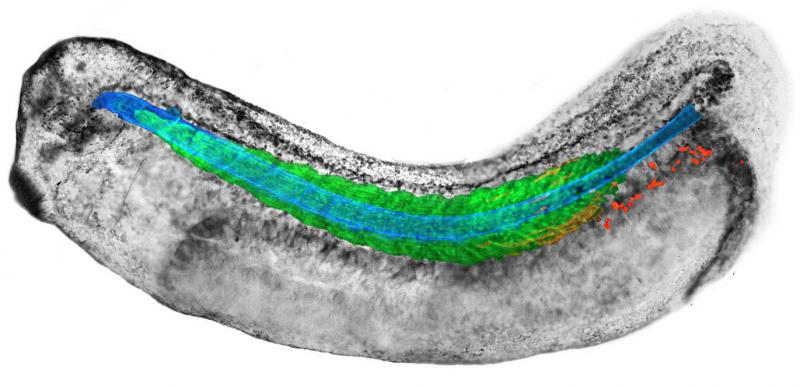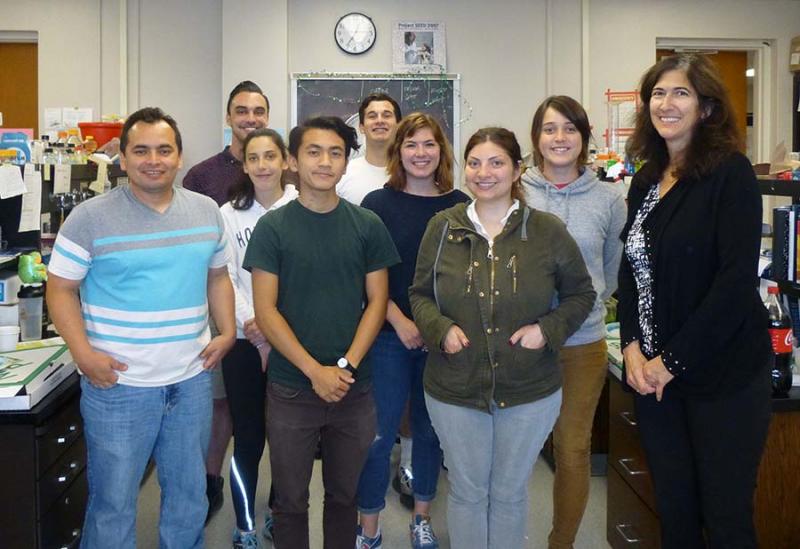The Domingo Lab is currently closed and is not accepting new students at this time.
My lab research is focused on the cellular and molecular pathways that underlie pattern formation in the vertebrate embryo. We are particularly interested in how cells acquire specific cell fates and morphologies early in development. Our most recent work focuses on the formation and differentiation of the musculature system. Our model system is the African clawed frog, Xenopus laevis as it lends itself well to the study of embryological processes given that embryos can be easily observed in a culture dish from the onset of fertilization to tadpole stages.

My education work focuses on strategies to increase the retention and graduation rate of students in STEM, with a particular focus on increasing diversity in the sciences. These efforts have led to improvements in teaching strategies as well as the development of innovative programmatic efforts that increase diversity across disciplines ranging from biology to computer science.

2015 Members of the Domingo Lab
Lab Manager: Dr. Julio Ramirez: bacillus@sfsu.edu
Graduate Students:
- Melissa Adams
- Chris Pineda
- Maria Del Pilar Lopez
Undergraduate Students:
- Rebecca Blandino
- Jason Garcia
- Talia Hart
- John Paul Kangleon Bugay
- Kellen Hopp
# SF State Undergraduate student; * SF State Master’s student